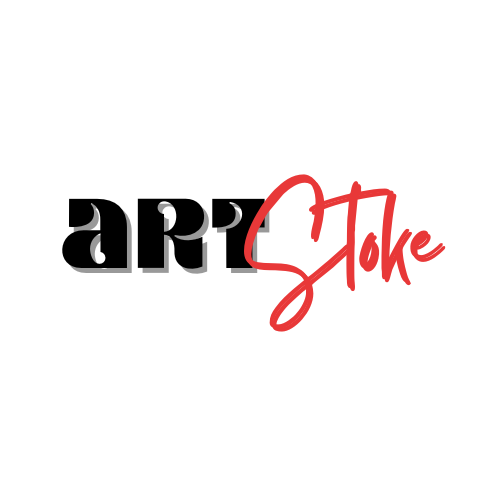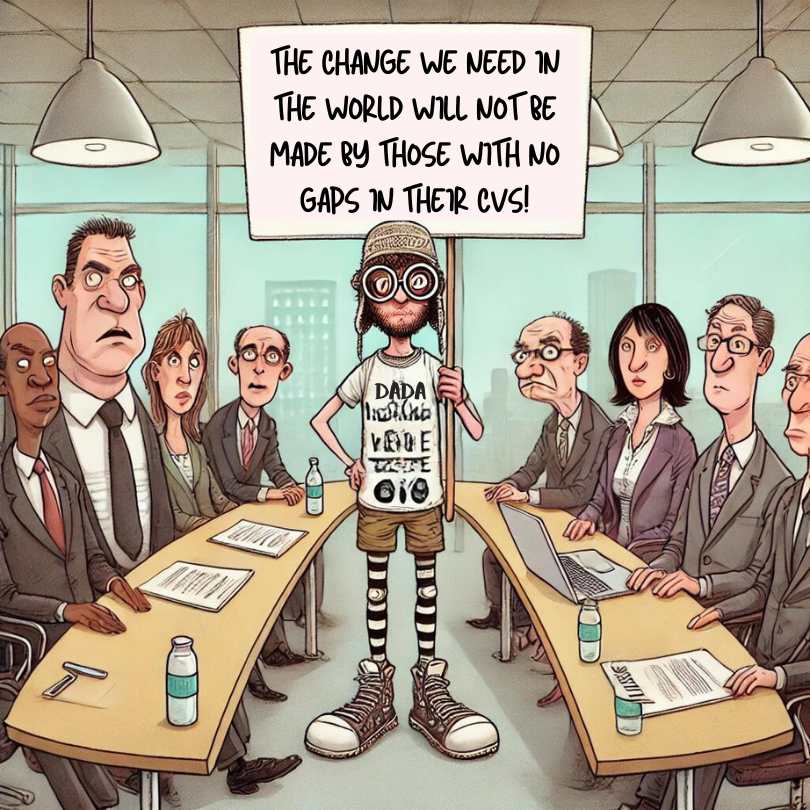In a world where productivity is often equated with uninterrupted career progress, gaps in employment are frequently viewed with suspicion, especially by hiring managers and corporate culture. This taboo, perpetuated by institutions like academia, media, and corporations, sustains a narrative that defines success through continuous employment, discouraging deviations from the conventional career trajectory. However, as society evolves and our understanding of creativity, innovation and leadership deepens, it’s time to challenge these outdated perceptions. Gaps in careers may in fact be catalysts for growth, fostering unique perspectives, resilience and a deeper sense of purpose.
“The voyage of the best ship is a zigzag line of a hundred tacks. See the line from a sufficient distance, and it straightens itself to the average tendency. Your genuine action will explain itself, and will explain your other genuine actions. Your conformity explains nothing. Act singly, and what you have already done singly will justify you now.”
Ralph Waldo Emerson, Self-Reliance: An Excerpt from Collected Essays, First Series
Diverse Experience and Innovation
Diverse career paths lead to innovation
Research shows that individuals who have varied experiences across industries, roles, and environments are more likely to approach problems creatively. Exposure to different ways of thinking encourages “cognitive diversity” which enhances the ability to solve complex problems and innovate. A 2014 study published in Harvard Business Review highlights how diverse experiences contribute to creative problem-solving and innovation.
Cross-industry expertise
People who have worked in multiple fields are often able to synthesize knowledge from different domains, leading to breakthrough innovations. Steve Jobs famously credited his understanding of typography, learned in a calligraphy class, with shaping the aesthetic vision for Apple’s products. Varied experiences foster “cross-pollination” of ideas, which can spur new ways of thinking.
Career Breaks and Personal Development
Career breaks increase resilience and adaptability
A break from traditional career paths often provides individuals the opportunity for self-reflection, skill-building, and personal growth. Studies show that people who have experienced unconventional career trajectories often develop greater resilience, emotional intelligence, and adaptability—qualities critical for leading change. Researchers have found that sabbaticals or career gaps can foster personal development, making individuals more open to change and better prepared to lead innovative initiatives.
Lateral thinking and open-mindedness
A study from the University of Toronto found that individuals who deviate from rigid career paths are more likely to develop lateral thinking—an approach that fosters creativity and unconventional solutions. Career breaks can allow people to step back, reflect, and approach problems with fresh perspectives that are often missing in rigid corporate environments.
Challenging the “Conventional Career” Paradigm
Research on leadership
A report from McKinsey & Company found that leaders with non-linear career paths often possess higher levels of emotional intelligence and creativity. These leaders are better equipped to manage teams, adapt to changing environments, and inspire innovation. The emphasis is shifting from rigid corporate loyalty toward valuing broader, more diverse experiences.
Disruption vs. traditional models
Innovators and disruptors in technology, business, and social entrepreneurship often come from unconventional backgrounds. Elon Musk, Richard Branson, Vitalik Buterin and many others broke away from traditional career paths and brought radical change to their industries by drawing on their unique life experiences.
Psychological Flexibility and Problem-Solving
Broadened perspectives
Career diversity encourages “psychological flexibility”—the ability to adapt to new environments, which is essential for creative problem-solving. Studies on creativity, such as those by Teresa Amabile at Harvard Business School, indicate that flexibility is often a product of diverse and non-linear experiences. Individuals who have held varied roles, lived in different cultures, or pursued non-traditional career paths often bring broader perspectives to the table.
Closing
Rethinking the taboo against career gaps is not just about changing how we view individual employment histories—it’s about redefining what we value in society. As research and case studies show, unconventional career paths often lead to the kind of lateral thinking, emotional intelligence and innovation needed to solve today’s complex problems. In embracing career diversity, we unlock a wealth of talent that has been overlooked or undervalued, fostering a more inclusive, dynamic and innovative world of work. It’s time to celebrate the richness of varied experiences and recognize that true success isn’t defined by a straight line—it’s shaped by the diverse, winding paths we take.




